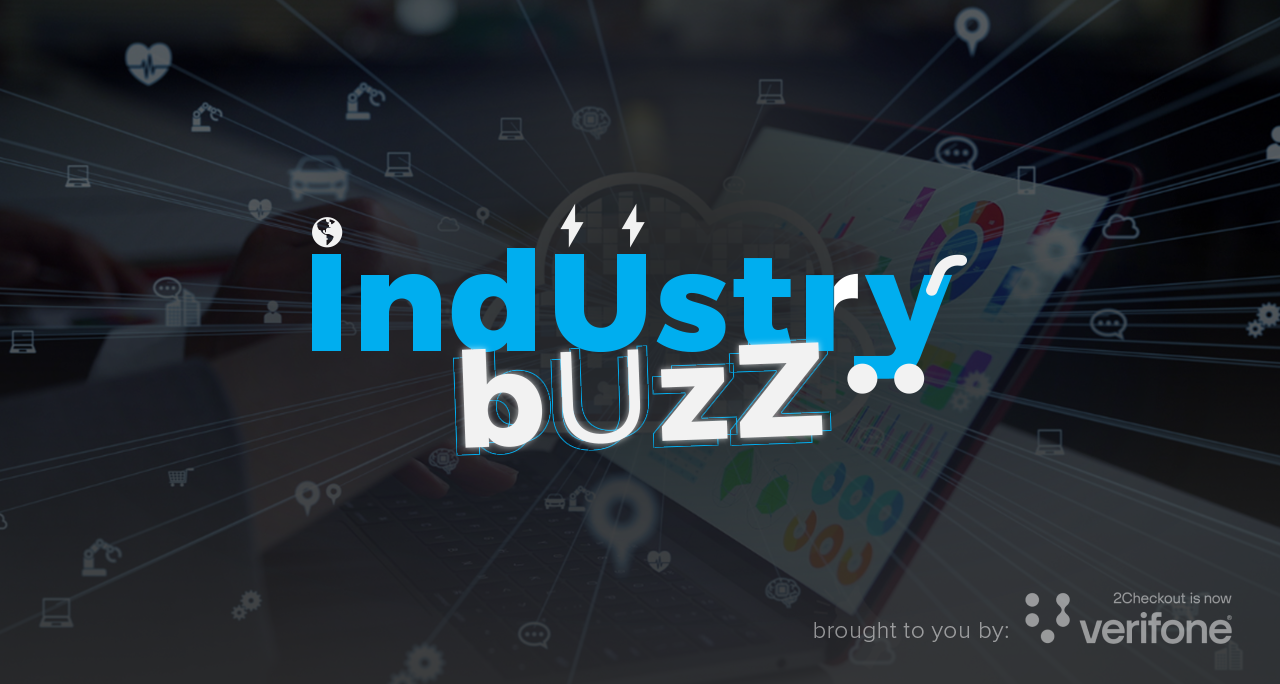As you may already know, we’ve recently hosted a panel discussion on eCommerce Predictions for 2018, where we asked some amazing experts three questions about upcoming industry trends. You can find the great line-up of speakers and the answers to the first question here.
So today, we’re happy to share the chat we had regarding the second question:

Erich Litch: Moving on to the second question, we’ll actually kick it off with you, Ian, “What are the biggest surprises in your list of trends that people wouldn’t expect to see?” So, we’re thinking underestimated or overlooked trends. It sounded like you thought maybe that one was data and GDPR, but let’s give you an opportunity to see if there’s something else you think people are overlooking.

Ian Moyse: I think that the biggest shock for me is that everyone’s talking about, and Eric touched on VR and we’re hearing AI and all this new stuff, if you hear the theme we’re talking about, a lot of it is back to basics or doing the stuff we’ve been talking about but haven’t been doing. And I think that’s the biggest shock that what we’re going to see is people going two steps back before they go three steps forward. As Eric said, VR is talked about but I don’t see people actually using it. I do school speaking and the students were asking, “Are robots going to take our jobs?” because they read all the hype—it’s all the shiny stuff, but no one’s talking about the reality of what’s really going on. It isn’t that. It’s can we get the customer journey slicker, quicker, shorter? You know, Amazon’s pretty nailed that, I think, but Amazon’s got the deep pockets that pretty much no one else can afford, but the average business, how are they going to do this?
And we’re seeing trends where people are actually looking at how they improve the telephony experience—yet that’s been talked about for years as going away—because they found they cannot automate with chatbots and all the technology the way they thought they could because they can’t afford to do it. They don’t have the expertise, they don’t have the money, they don’t have the process, and a lot of the stuff they intended to do is falling between the cracks and the customer is saying, “Well, I just need to speak to someone,” and then they’re finding actually, we haven’t enabled that, we’ve stepped backwards. So they’re trying to go sort of a little bit back and fix stuff back to where it should be, pretty basic stuff. That’s the big trend I see, I think we’ve overhyped it and we need to get the fundamentals where customers want them to be.

Erik Huberman: Honestly, I think I everything Ian just said is my exact sentiments. We talked about “content is king” six, seven years ago, that was the marching order before big data, before all this, and yet still to this day, nobody really focuses on content, so I think that’s going to be one. I also think that AI is going to actually slow down a little bit. I think terrible marketers like myself got ahold of the word and started throwing AI at something that’s just machine learning, and you know, it’s literally algorithm, it’s not AI, there’s nothing intelligent about it, it’s just “if” and “then” statements so far, and so the term AI I think will actually—and this happened once before in terms of the cycle—where it’ll slow down and hopefully investment will keep up in it because I think in the next five to ten years we’ll start seeing something reasonable there. But for now anything marketing itself as actual AI currently is just a fallacy and it’s a marketing ploy, so I think that will also shift to the sort of negative this year for a little bit. I think it’ll come back, but I think the hype will go away for a little bit.
I think data has actually a similar problem, where data is super important but the idea of big data, they’ve now come to realize, “Yeah you can have all the data in the world, but if you have nothing to do with it, no way to use it, it doesn’t do you any good.” You can have this giant database of things that are completely unusable. The example I always give from a marketing perspective, there’s all these you know DMPs in places where you can target the exact customer that you want and you can get down to their socioeconomic data, their name, their credit card statements, or whatever. The problem is the only platforms you can use that on are display advertising networks, which frankly don’t perform very well from a marketing perspective so that data is actually useless for the most part. So it’s that kind of things that have been “major trends” for the past couple years and talked about a lot, we’ll see that it’s a lot of noise and the basics are really what matters, as Ian said.

Joanna Wiebe: Yeah, I’m just going to echo exactly—I was thinking what’s old is new again, almost, but the things that you think are boring are what’s going to move the needle. Sorry, they’re not dazzling, they’re not fancy, but they can be a little fancy, like if content continues to be a big deal, are you serving up the right content and not just guessing and saying “I think you might like this” or “click here if you like this” but really knowing what a person is looking for and then serving it to them.
But it’s really going back to—it’s not surprising to me, but it might be surprising to people who don’t look at really old-school marketing and see how it continues to still apply all the things that have worked before, if you just nail those, just keep doing those, they keep working. That could mean a return to things like direct response mailers, which we’ve heard because everything’s digital if you start doing direct response mailers—what’s old is new again because it works and people don’t have a lot of money to spend and waste on things that don’t work anymore. But yeah, unsexy things continue to the best things.

Andy Mura: I like what Eric said. We talk a lot also about artificial intelligence, machine learning, but I see that the real surprise is the fact that the more technology we have, the more we’re going back to a need to interact with human beings. People are happy to have a live chat because they know there’s another person on the other side. So it’s true, data is really really important, but there are challenges connected to data, as Ian pointed out—of course, GDPR compliance and so on and so on. Another challenge, of course, is centralizing data and creating a customer journey which is kind of homogenous, but the idea behind collecting all this data is not so much hyper-targeting or creating super fancy campaigns or using artificial intelligence to visualize it in a very cool way. I guess the idea is going back to the level at which we can actually interact with human beings on a personal level. So, for example, data will play a big role, but because at that point customer support, sales, and marketing will all have access to consistent data, which will allow you to define a homogeneous customer journey and mapping a whole customer experience. So that’s more like the surprise that I think will be one of the hot topics for 2018. So going back to human-to-human more than anything else.

Sam Mallikarjunan: So Joanna said something interesting when she started previously, which is that it’s a little depressing because a lot of this is hard, and I think that we’re all struggling with this. Everybody on this panel and probably most of the people listening remember when eCommerce was easy. I was catching up with a friend of mine the other day, he’s a periodontist in Sarasota, Florida, and probably 12 years ago I just bought him the domain periodontistinsarasota.com and that’s all I had to do. The exact match domain worked, like spamming Google was what SEO was back then, it was relatively easy. It’s gotten hard because when things are easy, the quality of that experience is going to get lower and lower and lower.
So in order to set ourselves apart and for the platforms to protect their communities, they’ve raised the threshold, and that takes us back to Eric. I am, by the way, thrilled to hear people using SaaS economics terms when talking about eCommerce. There was a guy who founded an eCommerce company called Gemvara who said this to me eight years ago and it’s created the foundation of my theory around eCommerce since then: eCommerce companies need to start thinking like SaaS companies. As the cost of customer acquisition goes up, the only way to keep a business model in balance is to increase the lifetime value. We talk about things like GDPR, for example, you know, how do you do that? How do you get really good at selling to people if you’re not allowed to use their data?
My favorite model for this is actually Netflix. So I’ve rated almost 900 movies for Netflix, and most of us would kill to have our customers fill out a 900-question survey, but the reason I do it is because I know that Netflix is going to use that information to make my experience on their website better, so I almost never watch a movie without going back and rating it so that Netflix can work on increasing that experience. And as we’re talking about getting that customer lifetime value—that’s my main takeaway, by the way, if you’re good at keeping customers you can spend more money to get customers—as we’re talking about increasing that, creating that, as Andy called it, human experience, where people know that the reason we’re doing this is to make your experience, better, smoother, easier, overall increasing quality. You’ll be surprised how much information people are willing to give you when you start having an actual value-added interaction with them.
Stay tuned for the third post of the eCommerce trends series, where experts will answer the following question: “What are some new or improved tools that will help eCommerce businesses in 2018?”
If you’re eager to hear their answers, you can watch right now the whole discussion on eCommerce trends for 2018.






